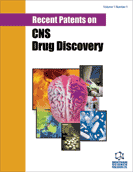Abstract
In recent years, the world population has been very conscious about having a healthy lifestyle. Anthocyanin is nowadays popular as a nutraceutical and hasalready been part of traditional medicines. It is not only employed as a colored pigment but also as a potent ingredient in pharmaceutical preparations in several food industries. Various In vitro (scavenging assays) and In vivo (animal and human cell line studies, various animal models, and clinical trials) evaluations have revealed that anthocyanins are rich in dietary supplements when consumed either through food or beverages and have always been beneficial for humans. According to several studies, it is reported that these anthocyanins possess various activities such as antioxidant, anti-aging, antiinflammatory, anti-diabetic, and antiviral and also manage illnesses related to neuroprotection and neurodegeneration. The size of the worldwide nutraceuticals market, estimated at USD 454.55 billion in 2021, is anticipated to rise at a 9 percent compound annual growth rate between 2021 and 2030. Over the course of the forecast period, the market is anticipated to be driven primarily by the rising demand for functional foods and dietary supplements. A positive view of medical nutrition in light of its growing use to treat cardiovascular disease and malnutrition is predicted to stimulate the market for dietary supplements. The significant characteristics of anthocyanin-based nutraceuticals are efficiency in cost, a wide safety view for both animals and humans, acceptability and easy availability. Regardless of a wide safety view, some of the nutraceuticals-based products are considered to be negotiated owing to adulteration with poisonous pesticides, abusive drug molecules, heavy metals, harmful plants, mycotoxins and lethal fertilizers. Thus, future broad research from both the pharmaceutical area and academia is required to ensure their effectiveness and safety concerns.






















